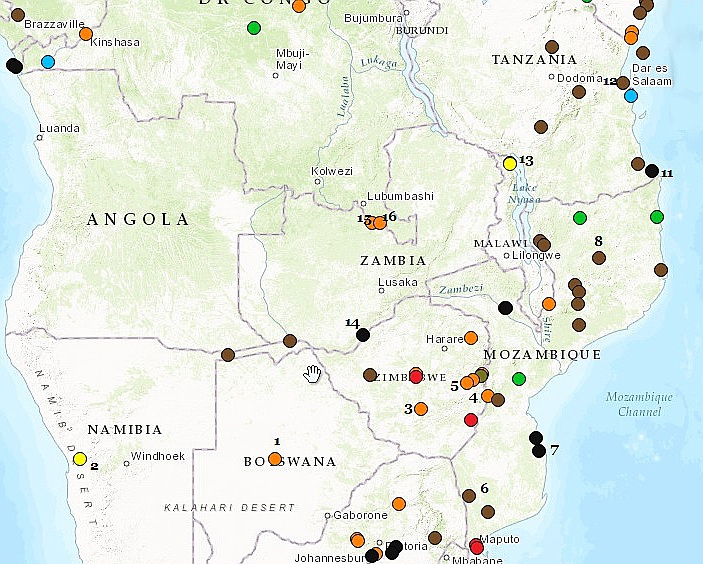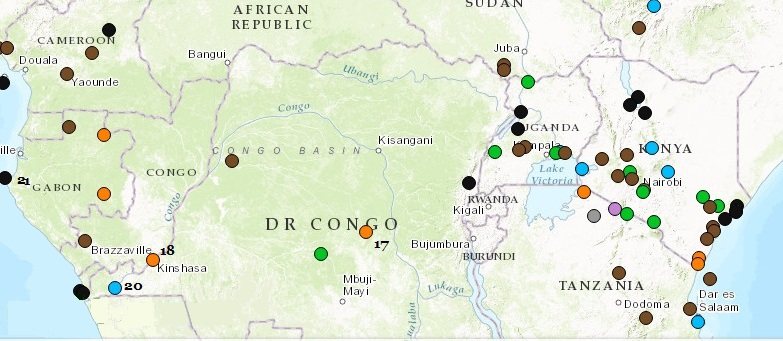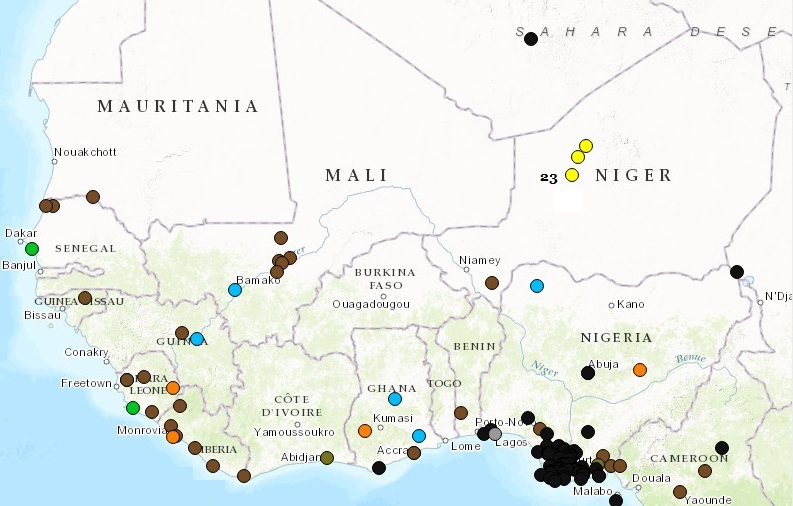BRICS FROM BELOW |
||
| HOME NEWS RESERCH SOLIDARITY MAPPING | ||
| PROTEST MAPPING | BRAZIL CHINA INDIA RUSSIA SOUTH AFRICA BRICS IN AFRICA | |
CHINA
Somalis in Soweto and Nairobi, Chinese in Congo and Zambia, local anger in Africa targets foreigners Mail & Guadian 25 January 2015 THE last week has been a bad time to be a foreigner in some parts of Africa. Clashes between Democratic Republic of Congo (DRC) police and political protestors that left some 40 people dead last week also revealed the level of hostility towards the Chinese in the capital Kinshasa. “Congolese, please” implored a sign in one store window, hoping it would be spared by the marauding protesters who attacked and looted around 50 Chinese-owned stores in the gritty, teaming Kinshasa neighbourhoods of Ngaba and Kalamu. Other stores displayed the message “Ya bino moko”—“it belongs to you, too” in the local Lingala language—in a bid to discourage the rioting demonstrators who shattered windows, broke down doors and picked shelves clean in nearby shops owned by Chinese nationals. In South Africa, anti-foreign mobs went on a looting rampage mid-week in the sprawling and highly political township of Soweto before spreading to other nearby centres. The outbreak of pillaging, which targeted dozens of stores owned by Indians, Somalis and other foreigners, began in Soweto after a foreign shopkeeper shot dead a teenager who allegedly tried to rob him on Monday night. http://mgafrica.com/article/2015-01-25-somalis-in-s-africa-chinese-in-dr-congo-and-zambia-anti-state-rage-in-africa-targets-foreigners/ Chinafrica: African workers share experiences at Chinese factories Xi Jinping, China’s new president, has chosen to visit to Africa as part of his first foreign tour – and for good reason. With more than 2,000 businesses operating on the continent and making more than 36 billion dollars a year, China has in just a few years become Africa’s number one business partner. From Togo to the Democratic Republic of Congo, our African Observers employed by Chinese companies told us about their jobs. On August 4, a Chinese official from a carbon mine in southern Zambia was killed by miners who rebelled against salaries they considered to be too low. The Zambian workers demanded that the mine owners bring their pay up to the minimum wage level set by the government. Two years earlier, at the same mine, concerns over wages and security had already led to a violent confrontation in which two officials from Collum Coal mine opened fire on striking miners, injuring several of them. Throughout Africa, more and more protests against Chinese companies have been held in the past few years, whether to demand better salaries or to denounce the detrimental effect that the Chinese competition has had on African-owned businesses. (At African markets, Chinese products are sold at much lower prices than local products). http://observers.france24.com/en/20120822-chinafrica-african-observers-share-experiences-working-chinese-companies-china-business-togo-cameroon-senegal The Chinese Invade Africa Ian Johnson 25 September 2014 In early May, China’s premier, Li Keqiang, made a trip to Africa that raised a central question about China’s rise: What effect will it have on the world’s poorer countries? As a big third-world country that has lifted hundreds of millions out of poverty in just a few decades—and has risen so fast that it’s easily the only serious challenger to the United States’ superpower status—China has enormous cachet, with lessons that many countries are eager to learn. But as the trip showed, those lessons are complex and ambiguous. Premier Li visited four countries and the headquarters of the African Union in Addis Ababa. He pledged billions of dollars in new aid, promised to share technology, and unveiled a series of much-publicized deals, including a nine-hundred-mile railway line in Nigeria and a research center to help link major African capitals by rail. Li urged African leaders and Chinese companies that China—already Africa’s largest trading partner—should double its trade with Africa by 2020 and quadruple its investment there. For the better part of a decade, these sorts of headlines have caused distress among nongovernmental organizations and in Western capitals. Groups such as Human Rights Watch have detailed labor abuses and shown how China’s limits on free speech at home have been exported abroad, especially to dependent states in regions like Africa.1 The economic ties are sometimes portrayed as under-the-table deals cut between Beijing and corrupt leaders in Africa. Instead of helping to build civil society, these deals are said to hurt Africa’s long-term interests, reinforcing the tendency of corrupt elites to secure resources at a low price. http://www.nybooks.com/articles/2014/09/25/chinese-invade-africa/ CHINESE MINING OPERATIONS IN KATANGA DEMOCRATIC REPUBLIC OF THE CONGO http://www.raid-uk.org/sites/default/files/drc-china-report.pdf SOUTH AFRICA South Africa's war in the DRC: Has Rhodes passed on the baton? At a time when struggles are being waged to remove colonial and apartheid era statues, like those of the imperialist Rhodes, in South Africa; and xenophobic attacks have been happening in the county, the South African ruling class announced the continuation of the own imperialist war in the DRC. This article looks at this war and the role of South Africa's ruling class in the DRC. In the heat of the struggle for statues like that of Rhodes – the arch-symbol of British imperialism – to be pulled down, and in the midst of the horror of the recent xenophobic attacks in South Africa, few people seemed to notice an announcement by Jacob Zuma that South African troops will remain at war in the Democratic Republic of the Congo (DRC) for another year. Of course, Zuma made this announcement on behalf the South African ruling class – comprised today of white capitalists and a black elite mainly centred around the state, Black Economic Empowerment (BEE) and ‘traditional’ royal families. In this there was a real irony that while Rhodes’s likeness was falling from its perch at the University of Cape Town, and immigrants from other parts of Africa and Asia were being attacked because of sentiments stoked up by a rehabilitated relic of apartheid (the Zulu king, Zwelithini), the South African ruling class felt brash enough to say they will be continuing their own imperialist war in the DRC. Like in all wars, including those promoted by the likes of Rhodes, it is not the ruling class that are actually doing the fighting in the DRC, but the sons and daughters of the working class. Reflecting on the First World War, Alexander Berkman noted that the working class are not really sent to war to save the poor or workers, but to protect and further the interests of the rulers, governors and capitalists of their countries . This applies equally so today in the case of South African troops’ involvement in the DRC. Indeed, what South Africa’s war in the DRC shows is that the South African ruling class don’t just exploit and oppress the working class in South Africa, but the working class in many other areas in the rest of Africa. It also shows that both at home and abroad they will use violence to do so, including trying to turn different sections of the working class on one another, by amongst of things tapping into nationalism, racism, ethnic chauvinism and xenophobia. South Africa’s war in the DRC South African troops have been stationed, in one capacity or another, for more than a decade in the DRC. They have stood guard over elections, they have been involved in ‘peacekeeping’, and at times they have also been involved in directly protecting the interests of the South African state’s ally, Joseph Kabila. In 2013, the role of South African troops in the DRC, however, officially escalated. Almost 1400 new troops joined the Force Intervention Brigade (FIB). South African troops in fact make up the bulk of the FIB, with support from Malawi and Tanzania. The FIB’s task, including the South African troops that make up its rump, is to hunt down and kill members of guerrilla organisations in the Kivu region. To do so they have been launching operations with the DRC military against such groups. At times the combat in this war has been fierce. In one day alone during the Battle of Kibati, in August 2013, South African troops – along with South African Air Force Rooivalk attack helicopters – killed over 500 members of the M23 rebel group. Such actions have seen the M23 effectively destroyed as a force. South African troops, along with their allies in the form of Tanzanian and DRC troops, are now beginning to make plans to strike at other rebel groups in the area. https://zabalaza.net/2015/04/29/south-africa-and-the-drc-has-rhodes-passed-on-the-baton/ Xenophobic attacks: Protests target S-African business outfits Reacting to the attacks, angry Nigerians protested in Abuja and Benin City even as the Socio-Economic Rights and Accountability Project, SERAP, urged the Federal Government to drag the South African government to the African Commission. Telecoms giant, MTN, on its part condemned the attacks and charged the South African government to provide strong measures against the spread. Youths protest at South African High Commission Nigerian youths under the aegis of Nigerians Demand, took to the streets of Abuja and cordoned the entrance leading to the South African High Commission in Wuse District, protesting the unwarranted attacks and killings of Nigerians. Apart from the High Commission, the protesters who were accompanied by a team of security personnel also stormed the Ministry of Foreign Affairs and DSTV offices at Maitama, requesting that justice be done to victims of the attacks. Some of the protesters, who marched in different groups chanted anti-xenophobic songs and displayed placards with different inscriptions that read: “Dear South Africa, we have loved you but you are attacking and killing us why? #Say no to Xenophobia; Stop killings in South Africa, Act now; we are Africans; Foreigners are not responsible for your joblessness, stop the killings; Say no to xenophobia; On February 13, 1976 Nigeria donated $2 million to ANC to assist its liberation movement, #Say No to Xenophobia; Say no to killings of Nigerians in South Africa,” among others. http://www.vanguardngr.com/2015/04/xenophobic-attacks-protests-target-s-african-business-outfits/ INDIA Indian companies to tap into Africa’s mining and power sectors A number of Indian companies have announced their intention to invest in Africa’s mining and power sectors at the recently held 11th edition of the West African Mining and Power Exhibition (WAMPEX) The expo, held in Accra, Ghana, and was organised by the Confederation of Indian Industry (CII) with the support of India's commerce ministry. Rachna Jindal, deputy director of CII, commented, “There are lots of opportunities in Ghana, and for that matter Africa, for Indian companies to take advantage, and so, the companies from India have come to showcase what they can offer. We have the technology that is appropriate and are ready to make our expertise available to those countries that need it.” According to a mining study released by KPMG, the African continent contributed 6.5 per cent of the world’s mineral exports in 2011, by mining 20 per cent of the world’s land area. Members of the Southern African Development Community (SADC) produce two-thirds of Africa’s mineral exports by value, with South Africa leading the pack. Ghana, in particular, is richly endowed with natural resources like gold, diamond, manganese, bauxite, iron ore, limestone, kaolin, feldspar and silica sands. The Ministry of Lands and Natural Resources of Ghana, in its website, stated political stability, availability of geological data, favourable investment climate and improvised governance as reasons which put Ghana in a favourable spot with investors. http://www.africanreview.com/construction-a-mining/excavation/indian-companies-to-tap-into-africa-s-mining-and-power-sectors Indian Mining Companies in the Democratic Republic of Congo Gregory Mthembu-Salter (Emerging Powers and Global Challenges Programme) The main mining companies in the Democratic Republic of Congo (DRC) are listed in Canada, Australia and the US. These companies are being joined steadily by Chinese state-owned operators. Although Indian mining companies have a growing presence in the copper, cobalt, tin and tantalum sectors, their operations remain relatively small scale, and none can yet be considered a mining major. Indian mining companies have lacked access to capital from Western stock exchanges and Indian state-owned banks. Instead, they have grown their operations primarily by reinvesting their own profits. Future prospects for Indian mining companies appear broadly positive. This is particularly the case for Mining Mineral Resources, which is positioning itself to become the main producer and processor of ‘conflict-free’ tin and tantalum. The main risk to Indian mining companies is political. As with other mining companies operating in Katanga, they are vulnerable to a change in policy from Moïse Katumbi’s successor as governor of the province. https://peoplesbrics.files.wordpress.com/2016/12/indian-mining-companies-in-drc.pdf BRAZIL Brazilian Foreign Direct Investment and Trade with Africa Brazilian development banks have played an important role in bringing Brazil closer to Africa. Among these, BNDES deserves special mention: its incentives and disbursements to Sub-Saharan Africa have increased hugely over the past decade. Trade between Brazil and Africa climbed from around US$4 billion in 2000 to about US$20 billion in 2010 (table 5.1), with a steep rise from 2003. With Sub-Saharan Africa, it increased from US$2 billion to US$12 billion over the same period. This environment helped BNDES to launch measures to further trade between the two regions, making possible the use of Brazilian loans. The stimulus given to Brazilian exports has also been central to the expansion of trade. In 2008, incentives for Brazilian companies to export to Africa (under the Program Integration with Africa or Programa Integração com a África) led to the disbursement of R$477 million (approx. US$265 million), rising to R$649 million (approx. US$360.5 million) in 2009 (PDP 2010). This increase can be attributed to the strengthening of the Productive Development Policy (PDP), established in 2008 with the purpose of promoting the cycle of national economic expansion, even during international financial crises. https://peoplesbrics.files.wordpress.com/2016/12/africa-brazil-bridging-chapter5.pdf What Is Brazil Really Doing in Africa? Robert Muggah co-authored with Nathan Thompson (Huffington Post) Brazil’s foreign policy elite like to talk up their political solidarity and cultural affinity with Africa. Sympathetic observers note that Brazilians are more involved there than at any time since the 1960s. There is some truth to these claims. In the past decade, Africa became one of Brazil´s fastest growing trade partners. Brazilian trade to the continent expanded from $4.3 billion in 2000 to $28.5 billion in 2013. But what is really driving Brazilian engagement in the region? Hardly surprising, there are some hard geopolitical and commercial calculations motivating Brazil´s rapprochement with Africa. While publicly advocating a selfless developmental — or south-south — project, Brazilian companies have business interests in most of Africa’s faster growing economies. And tighter relations with African counterparts also allows Brazil to secure its maritime control and influence over the South Atlantic. The dramatic surge in Brazilian engagement in Africa was propelled by President Lula (2003-2010), who traveled on 12 separate occasions to 29 states. No fewer than 19 of the 37 Brazilian embassies operating in Africa opened their doors during the past decade. Likewise, 18 of the 34 African embassies in Brasilia were inaugurated during the same period. And while his successor, President Dilma Rousseff, significantly reduced Brazil’s global engagements since 2011, Africa still matters to some in the foreign policy establishment. http://www.huffingtonpost.com/robert-muggah/what-is-brazil-really-doi_b_6413568.html RUSSIA Russian Industrial Giant Rostec Makes Forays Into Africa Amid Increasing U.S. And European Sanctions A massive Russian state-owned conglomerate is set to build a $4 billion oil refinery in Uganda and a $3 billion platinum project in Zimbabwe as Western sanctions continue to put pressure on the economy at home. Rostec, which has holdings in businesses from oil and mining to arms-making, hopes its expansion can reach beyond African natural resources and tap into Soviet-era trade ties in industries such as arms and defense. “Apart from proceeds from the project itself, building the crude oil refinery (in Uganda) opens markets for products of all Rostec’s companies and Russian companies as a whole,” the company said in a statement to Reuters. Among other ventures, Rostec’s portfolio of companies includes VSMPO-AVISMA, the world’s largest titanium producer, arms-maker Kalashnikov and arms exporter Rosoboronexport. The company along with its director general, Sergei Chemezov, is currently under sanctions from the U.S. Department of the Treasury for involvement in “Russian efforts to destabilize Ukraine.” http://www.ibtimes.com/russian-industrial-giant-rostec-makes-forays-africa-amid-increasing-us-european-1872445 Understanding the Crisis in Burundi Roland Rugero (World Policy Institute) Although the media’s coverage of the current crisis in Burundi has focused on the debate over a third term for President Pierre Nkurunziza, this is merely an easy-to-sell substitute for the real issues at stake. The matter of constitutional interpretation over term limits does have a role in Burundi’s political drama, but more important are questions of the president’s power within the ruling party and the direction of Burundi’s socio-economic development. The failed coup d’état on May 13 was a turning point in the crisis, and it can help us understand the current dynamics. Nkurunziza’s weak leadership over the past 10 years and a misinterpretation of the power relationships in Burundian politics led many people to believe that they could easily do without the president. By overthrowing him, they thought they could kill two birds with one stone: reinforce the American principle of a two-term limit in Africa, and promote the emergence of a different kind of politics in Burundi, with “visionary” leaders such as the Second Vice President Gervais Rufyikiri. But far from advancing the cause that its instigators claimed to defend, the failed coup strengthened the presidential camp and served as a pretext for renewed hope within its ranks and within the army. http://www.worldpolicy.org/blog/2015/07/15/understanding-crisis-burundi Back |
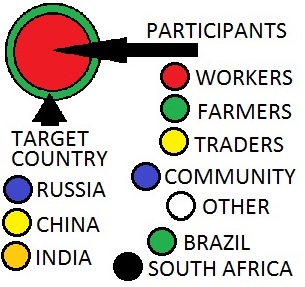
FILTER :BY Keyword |
||
| |
PROTESTS BY REGION AND YEAR SOUTHERN AFRICA 2011 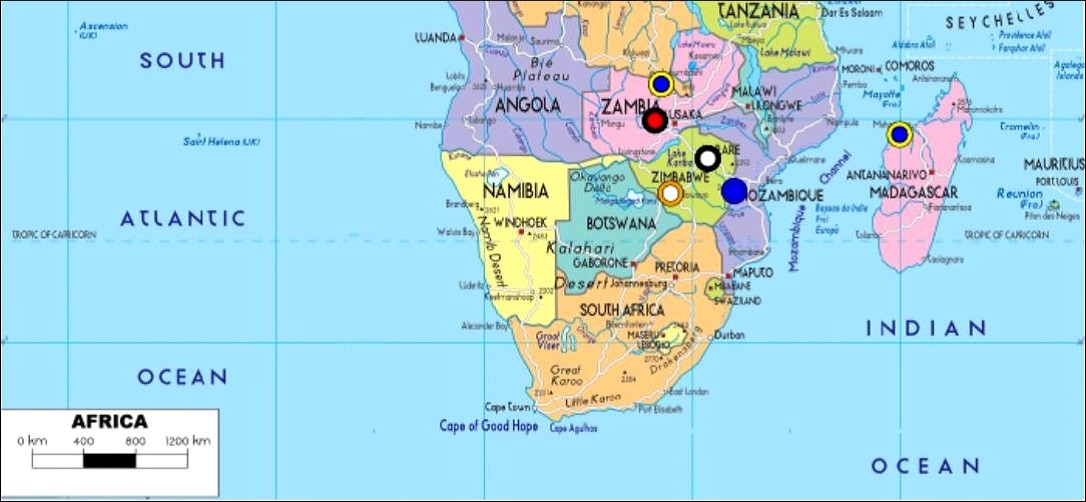 CENTRAL AFRICA 2011  NORTH AFRICA 2011 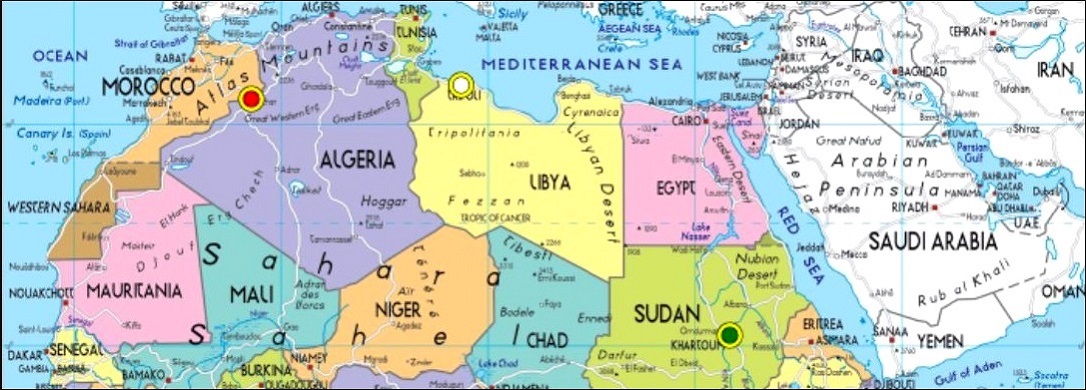 SOUTHERN AFRICA 2012 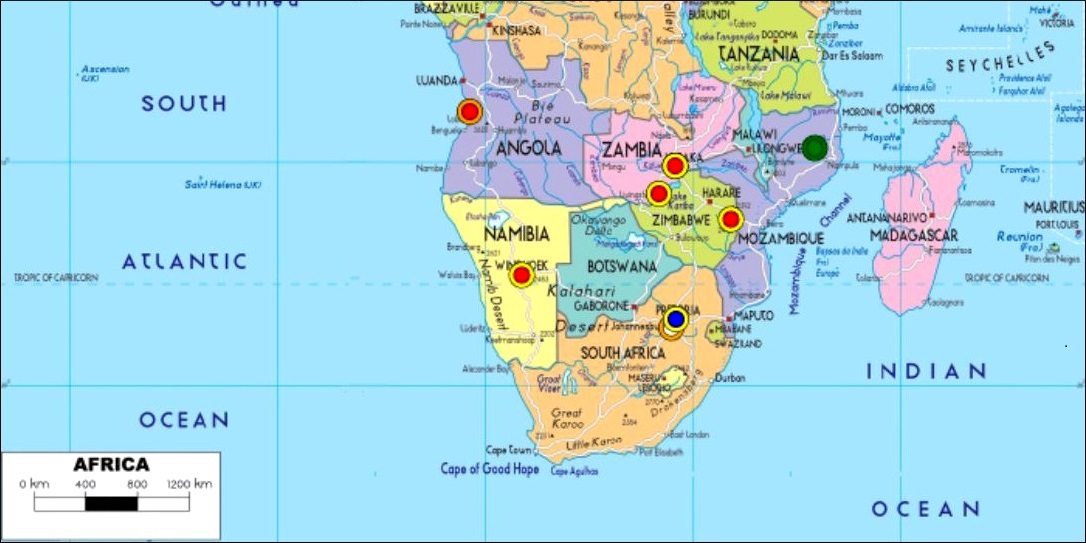 CENTRAL AFRICA 2012 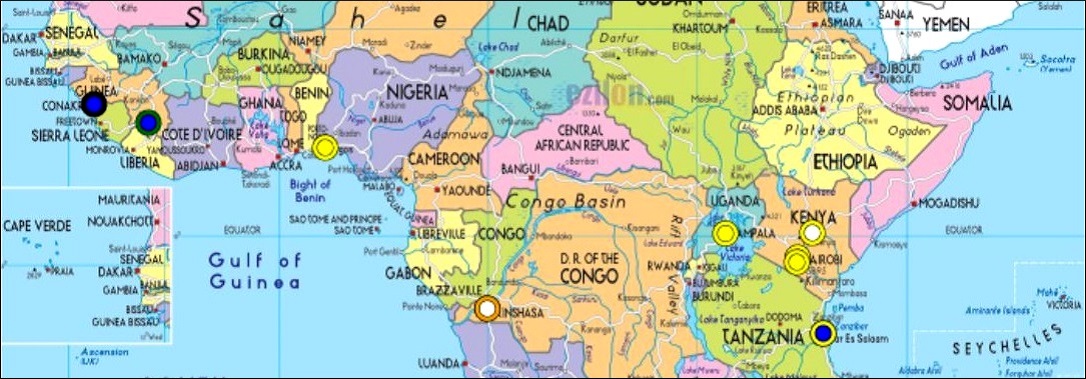 NORTH AFRICA 2012 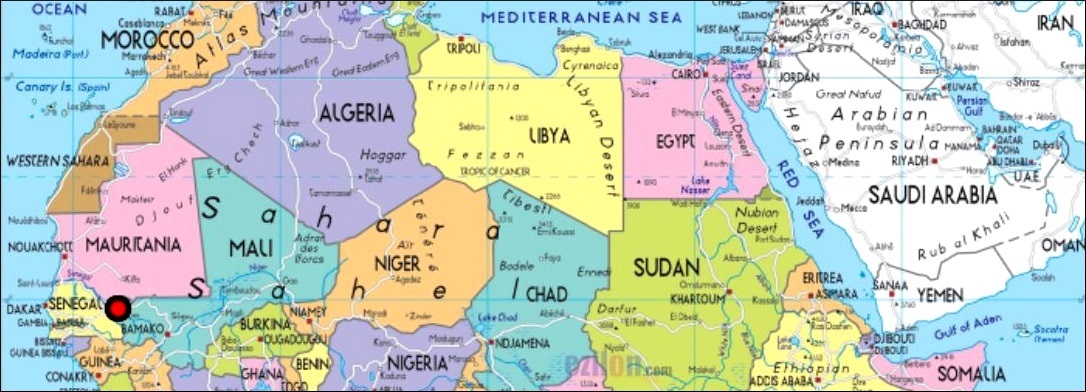 SOUTHERN AFRICA 2013 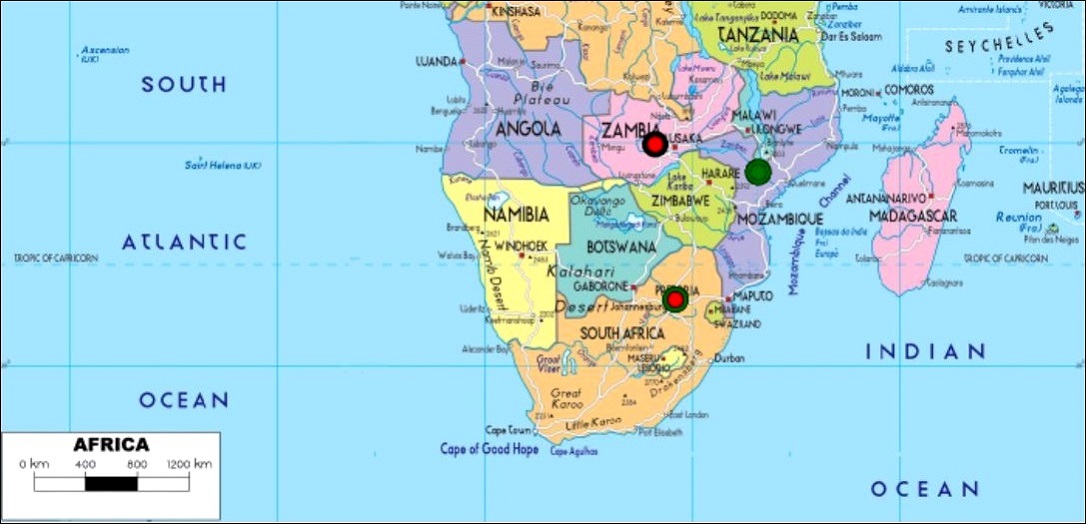 CENTRAL AFRICA 2013 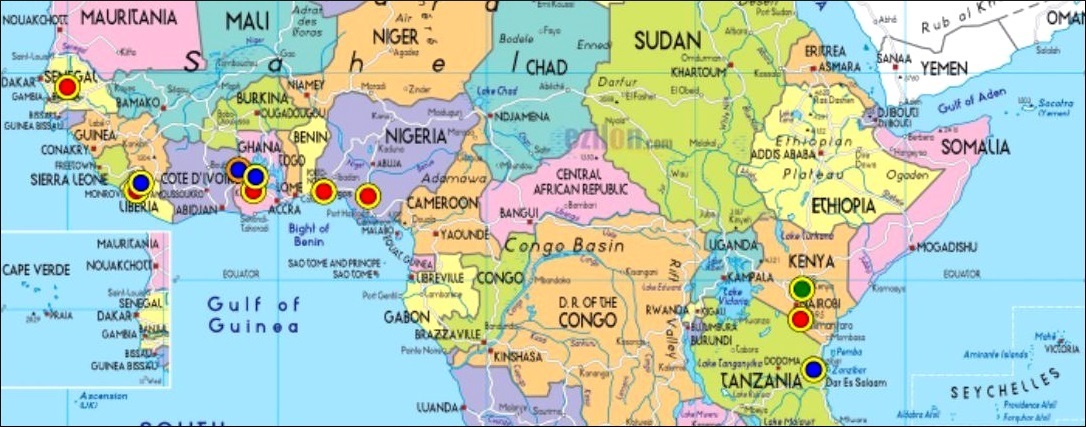 NORTH AFRICA 2013 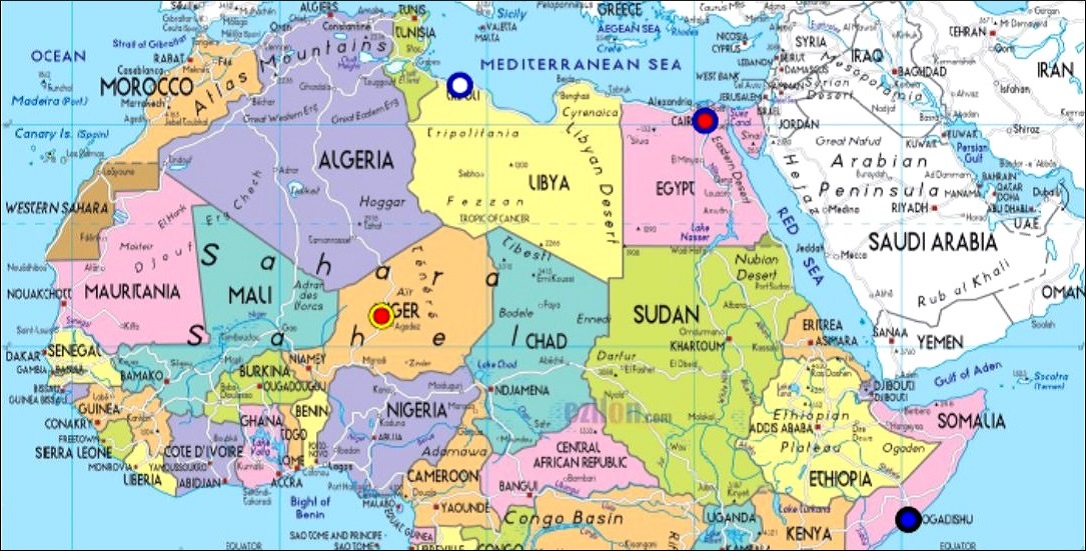 SOUTHERN AFRICA 2014 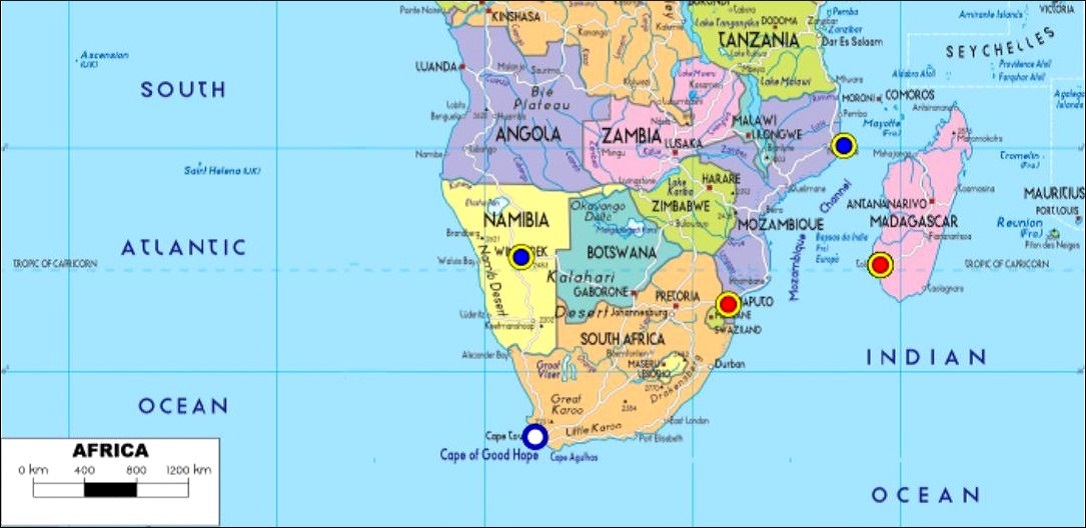 CENTRAL AFRICA 2014 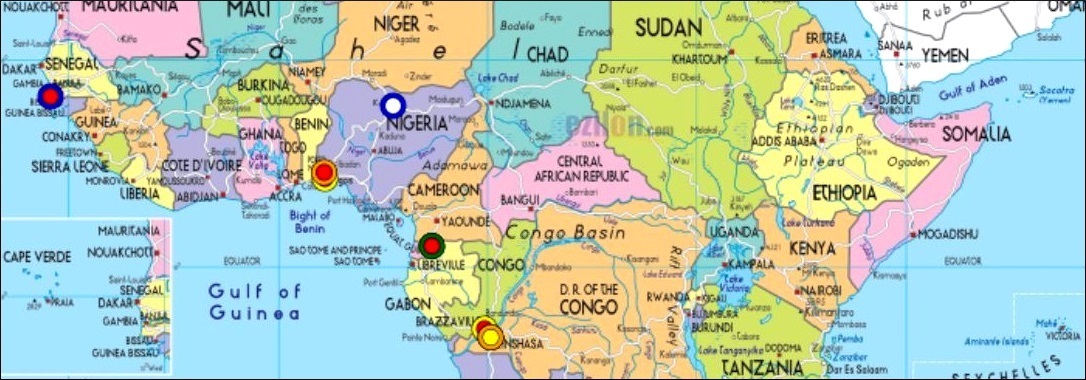 NORTH AFRICA 2014 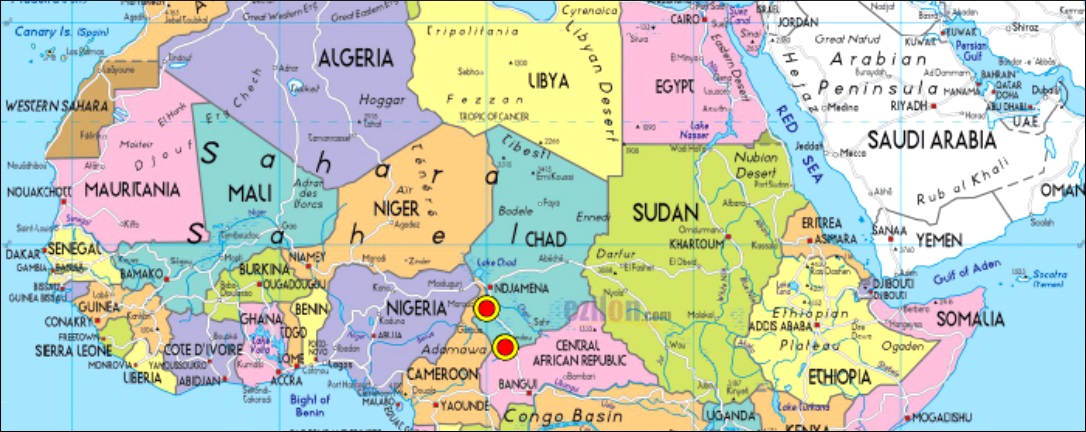 SOUTHERN AFRICA 2015 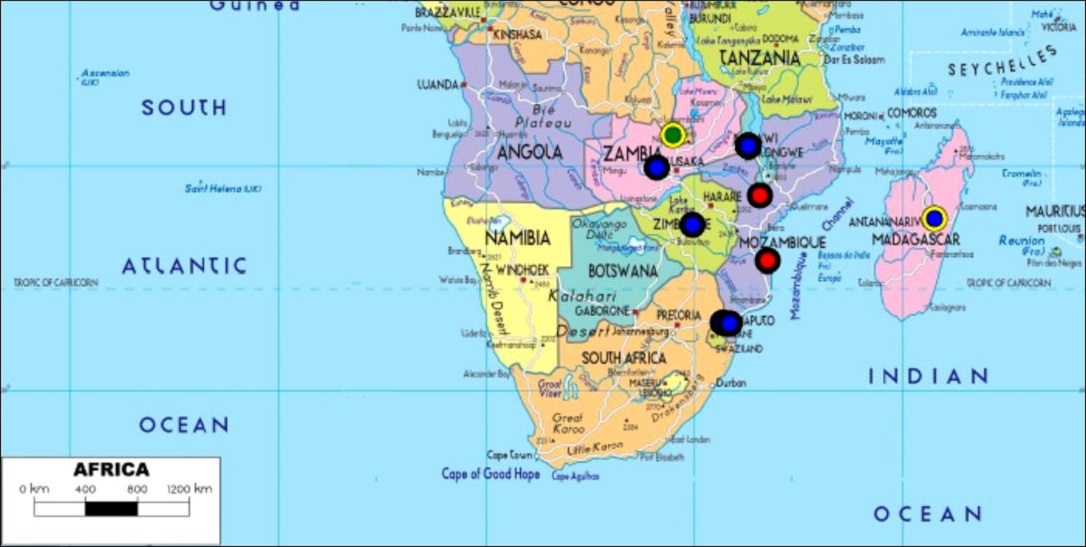 CENTRAL AFRICA 2015 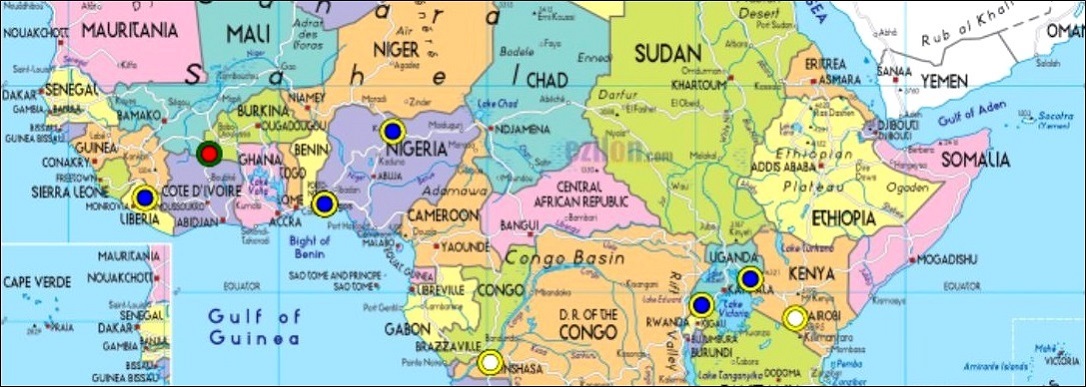 NORTH AFRICA 2015 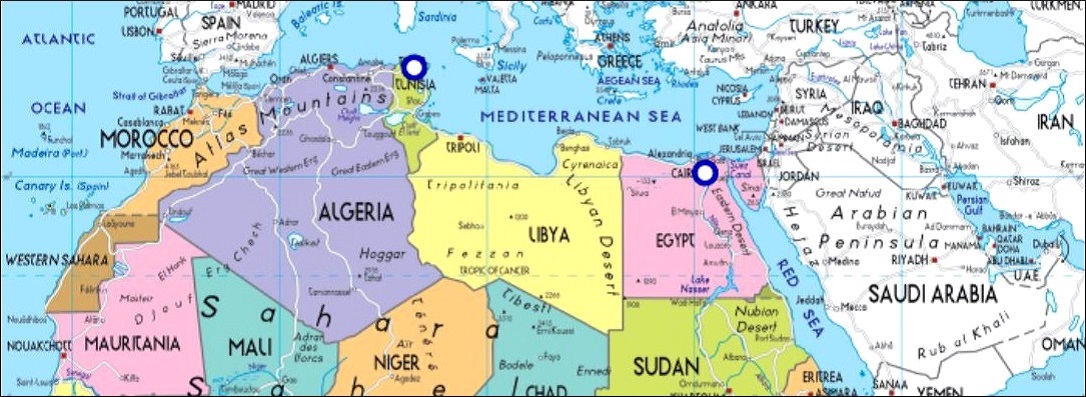 SOUTHERN AFRICA 2016 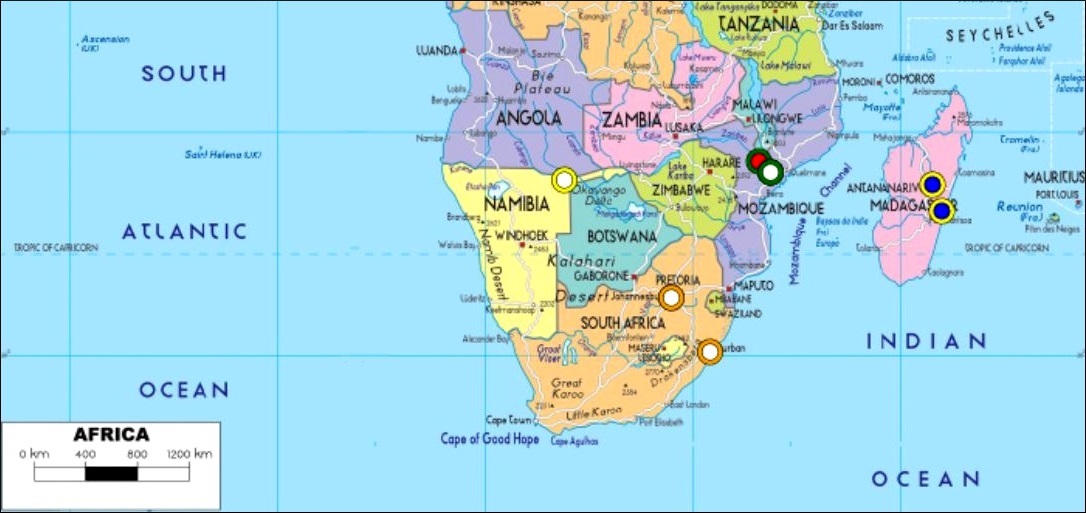 CENTRAL AFRICA 2016 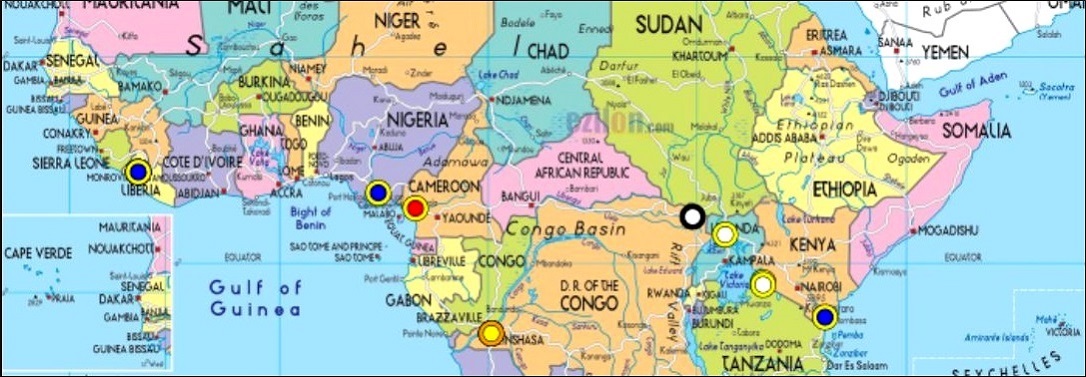 NORTH AFRICA 2016 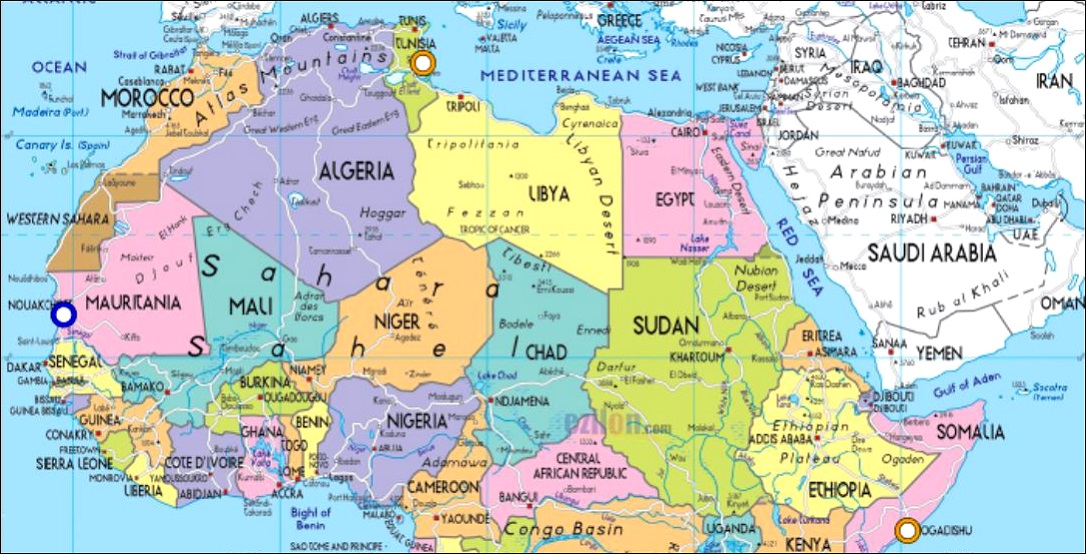 BY TARGET COUNTRY AND ISSUE RUSSIA Russian intervention in Syria and the Ukraine. 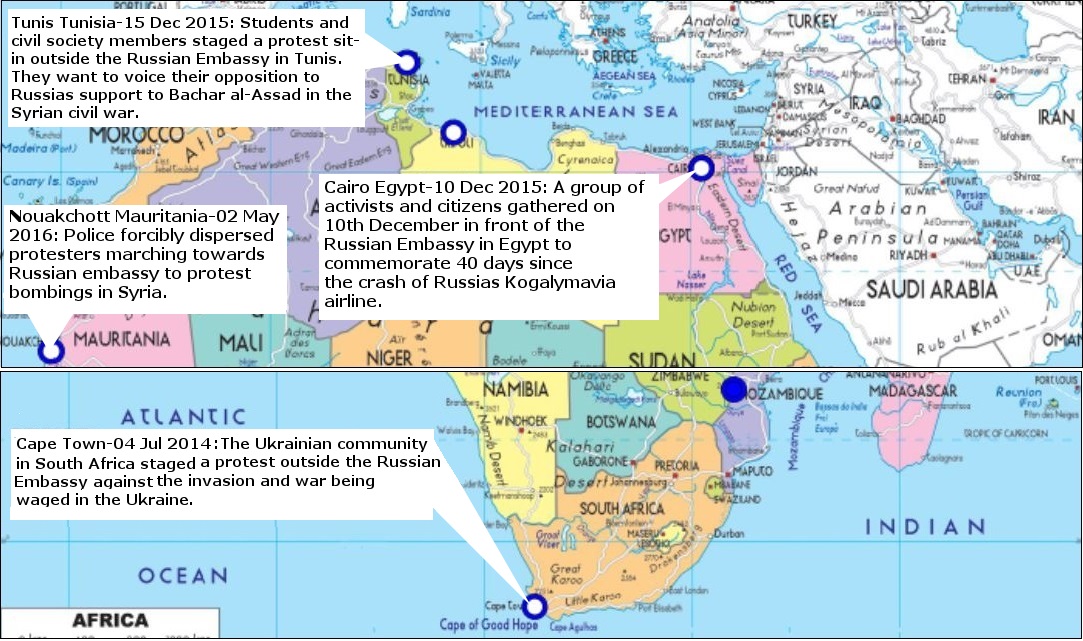 Cape Town-04 Jul 2014: The Ukrainian community in South Africa staged a protest outside the Russian Embassy against the invasion and war being waged in the Ukraine Tunis Tunisia-15 Dec 2015: Students and civil society members staged a protest sit-in outside the Russian Embassy in Tunis. They want to voice their opposition to Russias support to Bachar al-Assad in the Syrian civil war. Nouakchott Mauritania-02 May 2016: Police forcibly dispersed protesters marching towards Russian embassy to protest bombings in Syria. Cairo Egypt-10 Dec 2015: A group of activists and citizens gathered on 10th December in front of the Russian Embassy in Egypt to commemorate 40 days since the crash of Russias Kogalymavia airline. Participants lit candles to commemorate the crash. The crowd also raised banners asserting relations between Egypt and Russia, and arguing that "ISIS [Islamic State] does not represent Islam". Tripoli Libya-02 Oct 2013: Dozens of angry protesters tried to storm Russias embassy in Tripoli on Wednesday after reports that a Russian woman had killed a Libyan army officer, a witness said. The demonstrators destroyed a car parked in front of the embassy compound and damaged the missions entrance gate. Security services arrived on the scene and dispersed the protesters. One report suggests those involved were armed. Later reports claim two Libyans were killed. Cairo Egypt-15 Jul 2013: Tens of Morsi supporters staged a protest in front of the Russian embassy in Cairo. BRAZIL Conflicts with communities over mining and plantation agriculture. Also imports in South Africa and Burkina Faso. 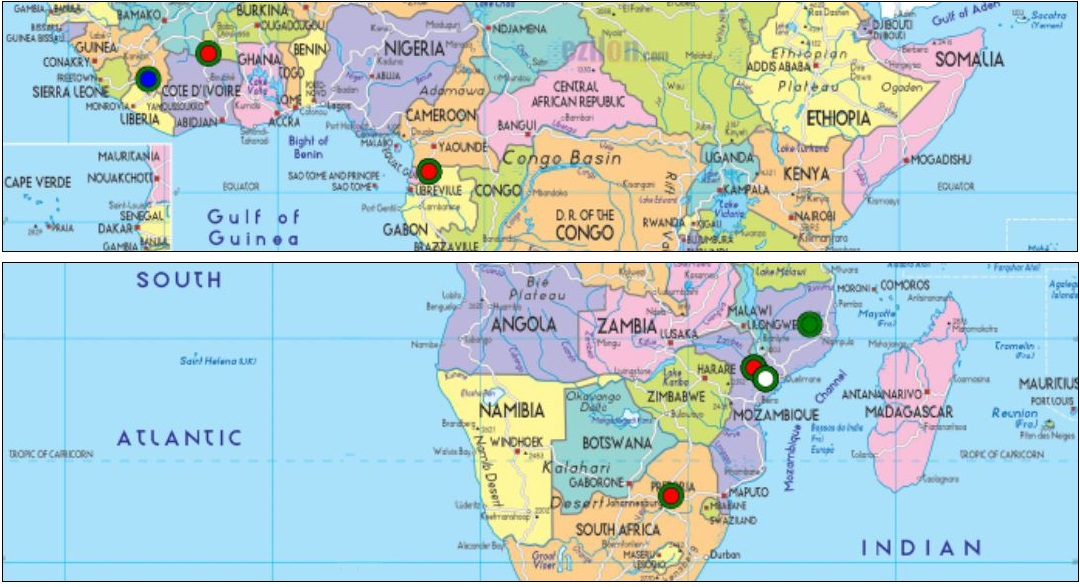 Inhamitanga Sofala Province Mozambique-19 Dec 2016: RENAMO gunmen attacked a train belonging to the Brazilian mining company Vale in Cheringoma district, Sofala province, injuring at least one person. The train was able to continue its journey to Matize, Tete province. Moatize Tete Province Mozambique-15 Feb 2016: Nearly 1,400 coal workers at the open cast coal mine operated by the Brazilian company Vale in Moatize district went on strike over allowance cut. Moatize Tete Province Mozambique-18 Apr 2013: Police on Thursday fired into the air to disperse protesters demanding the release of their leader who was arrested during a demonstration at a coal mine owned by Brazils Vale group, an activist said. Moatize Tete Province Mozambique-17 Apr 2013: Hundreds of Mozambican protesters blocked access to a coal mine owned by the Brazilian group Vale on Wednesday, demanding compensation for the loss of livelihood caused by resettlement. The group used stones to block two roads and a railway line leading to Vales Moatize mine, some participants were arrested. Tshwane (Pretoria) South Africa-03 April 2013: Congress of South Africa Trade Unions (Johannesburg) FAWU leads protest march over chicken imports from Brazil and EU. Northern Mozambique-01 Jan 2012: Programme of Triangular Cooperation for Developing Agriculture in the Tropical Savannahs of Mozambique (ProSavana) The Brazilian government together with Japan plan to complete a large-scale agribusiness project in Northern Mozambique. The project will take place over an area of 14 million ha. and will be exploited by Brazilian agribusiness companies for the production of soybeans, maize and other commodity crops that will be exported by Japanese multinationals. Comoe Cascades Region Burkina Faso-31 Aug 2015: Employees of SN SOSUCO demonstrated against a recent deal to import sugar from Brazil. They blocked the roads that lead from Banforo to Bobo-Dioulasso and Orodara. Anisok Wele-Nzas Equatorial Guinea-10 May 2014: Workers at the Brazilian firm Queiroz Galvao went on strike in Oyala to protest against degrading working conditions, harassment, physical abuse, and the preferential treatment of Brazilian staff over Equatoguinean employees. Macenta Nzérékoré Guinea-03 Aug 2012: Police opened fire in Zogota, in the Nzerekore region, on villagers who had gathered to protest against recruiting practices of the Brazilian mining company Vale. INDIA Indian goverment policies. Racism towards Africans. Competition with Indian traders. Conduct of Indian based multinationals, especially mining. 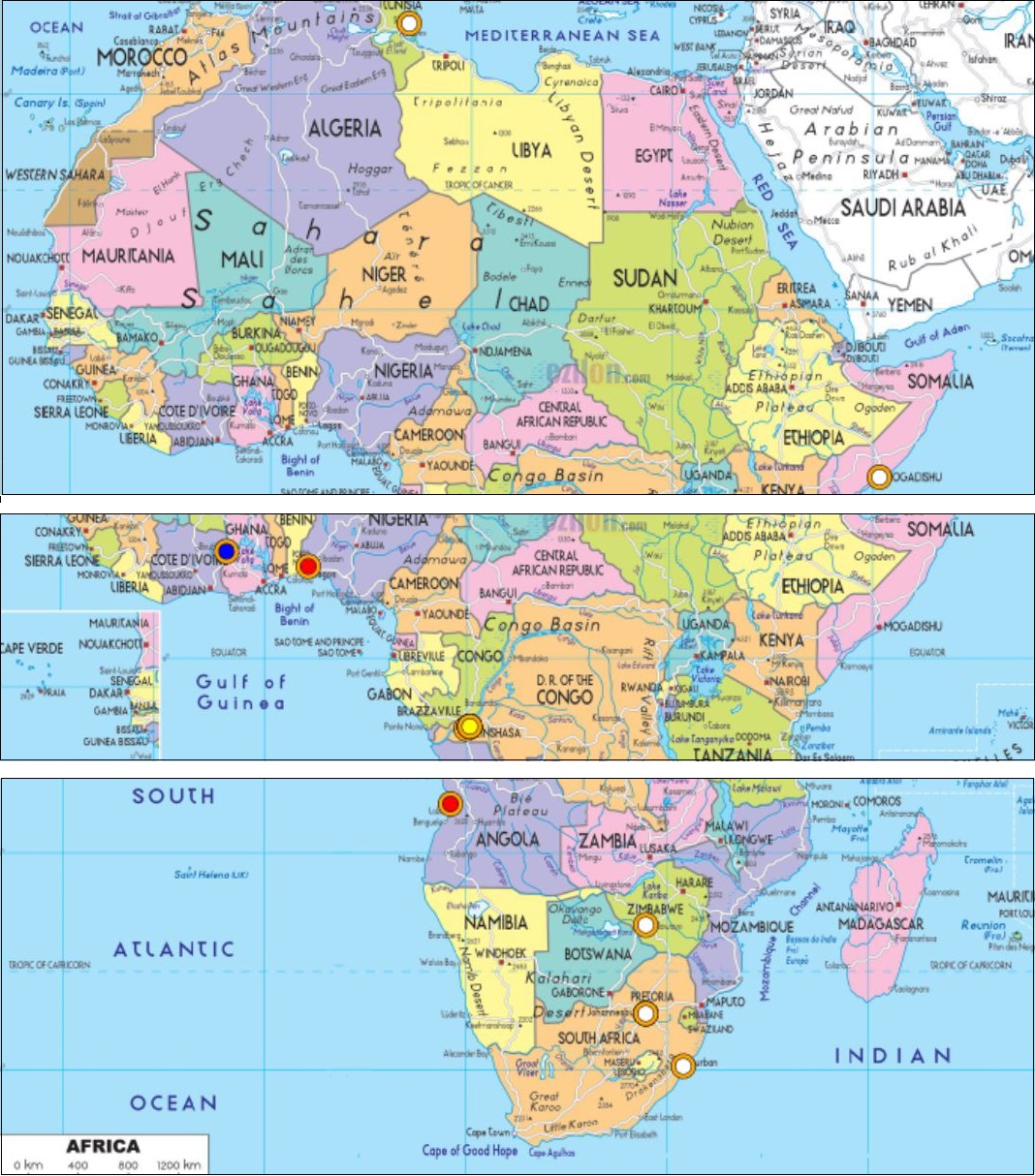 Johannesburg South Africa-09 Jul 2016: Members of the Johannesburg Kashmiri solidarity group of South Africa protested against the visit of Indian Prime Minister Narendra Modi who visited the Constitution Hill in Braamfontein. Sumbe Cuanza Sul Province Angola-14 May 2012: Indian workers continue to be held against their will in the cement factory in which they work after management refused to let them leave after the labor group threaten strike over work conditions. The laborers have been held for several days. Johannesburg South Africa-08 Feb 2012: AIDS activists protest outside Indian Consulate over changes in public health policies that could threaten production of generic HIV medication. Kinshasa DRC-07 Jul 2016: Internationale Reports of attacks against Indian shops have continued following the murder of a Congolese national in India. Police forces have had to intervene and place Indian shops under their protection. Kinshasa DRC-12 Dec 2014: The National Union of Congo Sellers (SNVC) has begun a strike across all Kinshasa markets to protest against the actions of Asian traders, including Chinese, Indian and Pakistani. The strike has had spotty observance however due to its enactment being spread by word of mouth among members of the union. Abeokuta Ogun State Nigeria-04 Nov 2014: The casual workers at Midland Rolling Mills, an Indian-owned company based in Abeokuta, protested poor work conditions. Kinshasa DRC-19 May 2014: Protesters, including Congolese students attending Indian univerisities, businessmen, and tourists, prevented a manager of the Indian embassy from entering the embassy, protesting delays in visa processing. Police intervened. Gontougo Zanzan Ivory Coast-03 Jan 2013: Protests against an Indian-owned manganese mine demonstrated against destructive mining practices by forming a barricade against the passage of mining workers. The rioters threw rocks and assaulted the workers, killing three, before police intervened. Mogadisho Somalia-28 Sep 2016: Protest against an Indian court ruling, which sentenced a group of Somali pirates. Skhira Tunisa-07 Jul 2016: The access to the industrial zone of Skhira delegation were reopened late on Friday afternoon, after the blockade imposed since Thursday night, by unemployed youth protesting against the recruitment recently announced by the Tunisian-Indian company fertilizer Tifert. SOUTH AFRICA Xenophobic attacks in South Africa. Exploitation of workers by South African based multinationals. 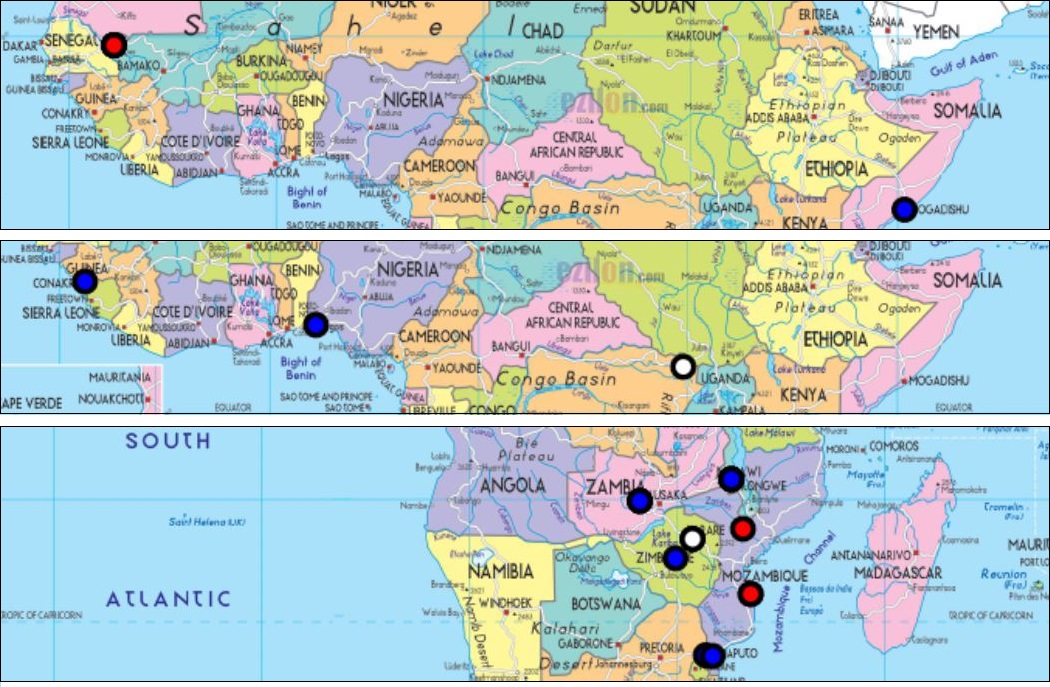 Malawi-24 Apr 2015: Protests and boycotts against South African shops and outlets in Limbe following violence against Malawians in South Africa. Maputo Mozambique-18 Apr 2015: Several hundreds of Mozambicans marched on Saturday in Maputo towards the South African High Commission, protesting against the xenophobic violence in South Africa. Zimbabwe-17 Apr 2015: Riot police in the capital, Harare,dispersed a crowd of protesters outside the South African embassy after they tried to force open the gates. They were singing the South African national anthem Nkosi Sikelela' iAfrica (God Bless Africa) and the deputy ambassador eventually came out to receive their petition. Hashtags about xenophobia are trending - and the BBC's Brian Hungwe in Harare says there are some messages going around on WhatsApp encouraging people to boycott South African acts at the upcoming. Harare International Festival of the Arts (Hifa), which runs from 28 April to 2 May - but no artists have cancelled.Zimbabwe's state-owned Chronicle reports that repatriation documents for 1,000 Zimbabweans in Durban have been arranged and the evacuation will begin on Sunday. Zambia-17 Apr 2015: Zambia's biggest private radio station Q FM has announced on its Facebook page that it has "indefinitely blacked out the playing of South African music in protest against xenophobic attacks on foreign nationals taking place in that country".The radio station now features a special protest logo on its Facebook page:"We need to send a clear message to South Africans that violence on fellow Africans negates African unity which the forefathers of the continent fought for," the station said. Temane Mozambique-17 Apr 2015: Johannesburg - Mozambicans stopped working at a Sasol natural gas processing facility in Temane on Thursday in protest against xenophobic violence in South Africa, and because there were South Africans working on the project, a company spokesperson said. Moatize Tete Province Mozambique-17 Apr 2015: There were protests at the presence of South Africans at the coal mine run by the Brazilian company Vale at Moatize, in Tete province. There was no violence against the South Africans. Zambia-01 Oct 2013: Shoprite has announced that they have fired all their striking workers after refusing to go back to work until their demands are met. The workers who have staged a boycott to press for improved conditions of service. Harare Zimbabwe-12 Feb 2011: A Zanu-PF group called Upfumi Kuvadiki (wealth to the youth), also launched demonstrations against foreign businesses and the Movement for Democratic Change-run council for awarding a contract to a South African company, EasiPark, to manage the citys parking. Watsa Orientale Province DRC-07 Mar 2016: 2 youths were killed during a clash between police and artisanal miners in Durba over a gold concession owned by a South African company. The violence allegedly started during a march by members of the local "Youth League" which was organized to demand that the authorities grant them rights to mine the area. Police allegedly fired first, while the youths threw stones. Lagos Nigeria-16 Apr 2015: Youth protest against a series of attacks against attacks against Nigerian and other foreigners in South Africa. The protest took place at the South African embassy in Lagos. Conakry Guinea-20 Sep 2012: Thousands of protesters marched in Guineas capital to call for the departure of South African company Waymark, which was hired by the Guinean government to re-do the countrys electoral list. Police fired tear gas to disperse the marchers but there were no immediate reports of injuries. Kayes Region Mali-12 Feb 2012: Miners from Yetela gold mine (Kayes region) marched in protest over layoffs by South African company Anglogold Ashanti. CHINA Exploitation of workers by Chinese based multinationals. 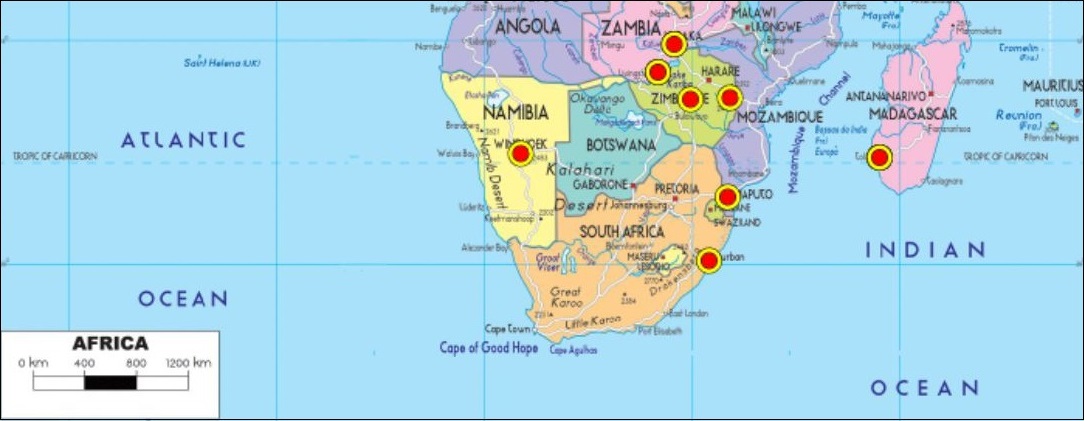 Toliary Madagascar-02 Oct 2014: Workers of the China Railway Company began a strike over wage claims not complying with Malagasy legislation and abuse by their Chinese management. Maputo Mozambique-04 Jan 2014: 200 Mozambican construction workers have downed tools in protest at alleged beatings by their Chinese employers and poor working conditions. Lusaka Zambia-19 Oct 2012: Workers at Chinese company protest after manager assaults worker, slicing off his ear. 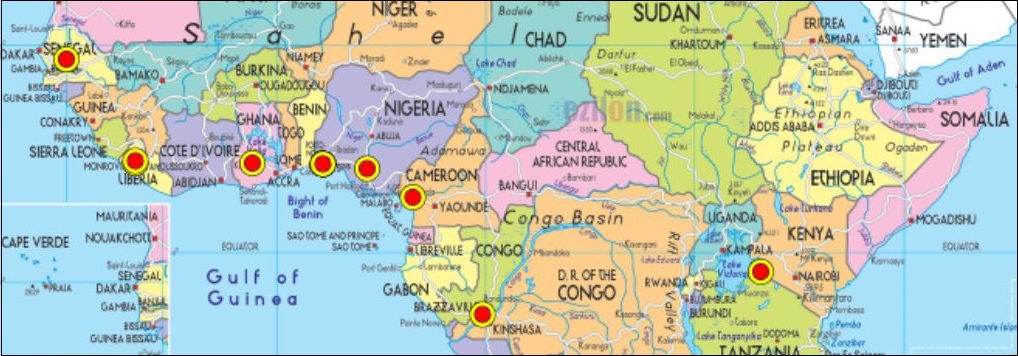 Wouri Douala Cameroon- 05 Nov 2016: Workers on strike until Thursday evening to demand better working conditions from the Chinese company CFHEC. Nakuru Kenya-01 Aug 2016: CRBC workers in Nakuru put down their tools and blocked traffic with sticks and stones. They wanted to be paid 500 shillings ($5) a day instead of 250 shillings—which is about the average wage for unskilled labor— and claimed that workers who had asked for more pay had been fired. CRBC workers in Nakuru, another construction site for the railway, put down their tools and blocked traffic with sticks and stones. They wanted to be paid 500 shillings ($5) a day instead of 250 shillings—which is about the average wage for unskilled labor—and claimed that workers who had asked for more pay had been fired. Weala Liberia-17 May 2016: A traditional secret society priest joined aggrived workers protests at the Margibi County office of the Chinese International Construction Company in Weala in demand of compensation for damaging their houses as a result of the companys operations, forcing the company to shut down its activties for the day. Lagos Nigeria-06 May 2015: Workers of a Chinese construction firm protest employment termination. Lagos Nigeria-02 Oct 2014: Over 100 youths working for a Chinese company, Linda Manufacturing Company at Agege protested to Lagos State House of Assembly over the death of their colleague. The protesting workers alleged he was denied medical treatment after he complained of stomach pain. Brazzaville Republic of Congo-27 May 2014: Some Chinese workers from China Corporation and Equipement Company (CSCEC) protested in front of the Chinese embassy in Brazzaville, in protest over unpaid salaries. Lagos Nigeria-17 Apr 2013: Employees of a Chinese-owned nylon bag manufacturing company gather on Awosika Avenue in Ikeja to protest a co-workers death and demand safer working conditions. Kwadaso Kumasi Ashanti Region Ghana-27 Feb 2013:Construction work on the Sofoline Interchange at Kwadaso in Kumasi has come to a standstill as workers of the Chinese Geo Corporation (CGC) working on the interchange have decided to lay down their tools and protest their pay. Montserrado Liberia-15 Feb 2013: Employees of a Chinese Company riot after a co-worker is allegedly killed. At least one company official was held hostage by the mob. Nigeria-01 Feb 2013: Nigerian workers protest employment conditions at CCECC Lagos-Badagry highway construction site. 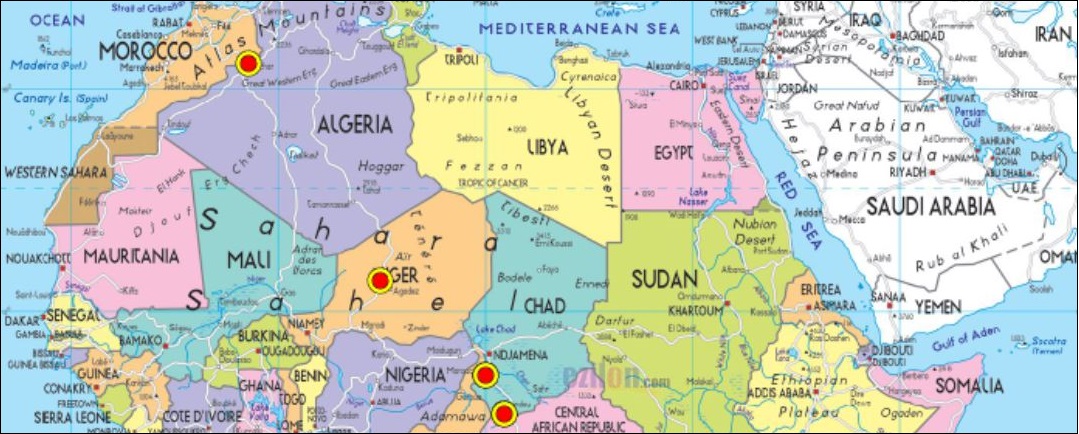 Logone Oriental Nya Pende Chad-09 Mar 2014: Chadian employees of a Chinese oil exploration consortium began a 3-day strike in Bongor basin area & Logone region, in protest over wages. Mayo-Boneye Bongor Chad-09 Mar 2014: Chadian employees of a Chinese oil exploration consortium began a 3-day strike in Bongor basin area & Logone region, in protest over wagesMayo-Boneye Bongor Chad-09 Mar 2014. Tchirozerine Azelik Niger-21 Mar 2013: Workers in the Chinese operated Azelik uranium mine begin an indefinite protest strike against working conditions. Bechar Abadla Algeria-29 Jun 2011: 15 Chinese workers blocked a road because their employer had decided to send them back home. The workers, who were building a jail in Abadla in Bechar province, had refused to return to China after their Algerian work permits expired. Protests by local business over competition and Chinese imports.  Maseru Lesotho-26 Nov 2007: On 26 November 2007, in what was arguably the most public attack on the Chinese, local street vendors, angered by a municipal campaign to relocate them to a designated market place away from the city centre, went on a rampage in Maseru, targeting Chinese-owned businesses. 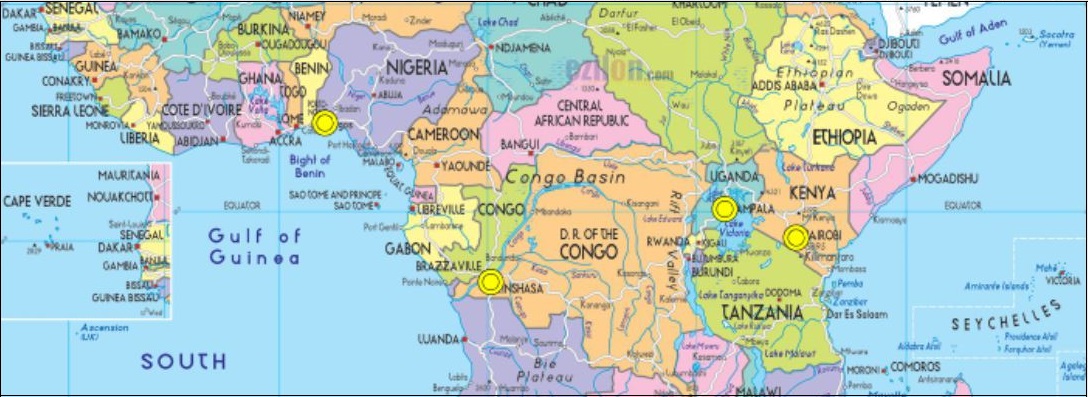 Kinshasa DRC-02 Dec 2014: The National Union of Congo Sellers (SNVC) has begun a strike across all Kinshasa markets to protest against the actions of Asian traders, including Chinese, Indian and Pakistani. The strike has had spotty observance however due to its enactment being spread by word of mouth among members of the union. Nairobi Kenya-16 Aug 2012: Hundreds of Kenyan traders took to the streets of Nairobi on Thursday, accusing Chinese dealers of abusing tourist visas to come into the country and peddle cheap wares. Kampala Uganda-27 Jul 2012: Ugandan traders protest over Chinese traders and the influx of cheap goods. Lagos Nigeria-18 Jun 2012: Traders begin a protest march against some Chinese business men who they accused of undermining and killing their businesses. Speaking during the protest, the national Chairman of the association, Mr. Azubike Nwachukwu , said Nigerian dealers have been operating at a loss since the Chinese business men started retail selling of the leather products at a very cheap price. Community protests over the activities of Chinese based multinationals especially mining. 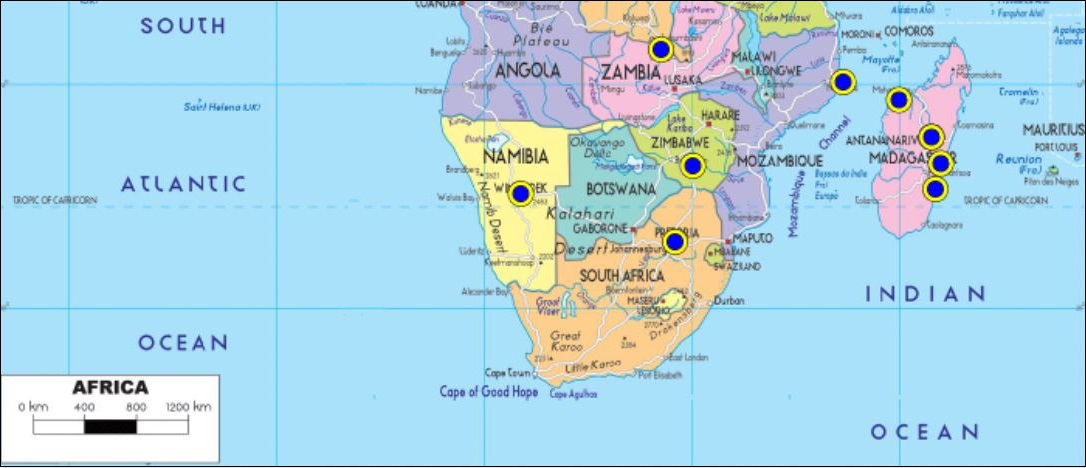 Antananarivo Madagascar-22 Sep 2016: In Soamahamanina, residents who were protesting against the exploitation of a chinese firm engaged in running battles with security forces. In sum, one woman was injured and a protester arrested. Antananarivo Madagascar-15 Sep 2015: A peaceful demonstration took place in Soamahamanina as residents and the DFP handed an ultimatum over to authority over the withdrawal of Chinese workers. Vohilava Mananjary Madagascar-24 Aug 2016: The people of Vohilava Mananjary took to the streets at the beginning of the week o protest the exploitation of a mining basin in their region. The mine is managed by a Chinese company, accused of polluting the water. Nampula Angoche Mozambique-23 Jul 2014: Residents blocked roads to stop trucks moving between a Chinese companys heavy mineral sands project in Sangage and the port; residents are protesting against what they consider to be the companys failure to implement promised corporate social responsibility programmes. Katutura Namibia-21 May 2014: More that 60 demonstrators protest against the increase in rhino poaching during the bail application of three Chinese nationals accused of poaching. Tshwane (Pretoria) South Africa-29 Mar 2012: Protest against rhino poaching outside Chinese embassy in Pretoria. Kafisali Chingola Zambia-01 Sep 2011: Residents living around a disputed prospecting area in Chingola’s Kafisali area have called for a forensic audit into how a Chinese investor grabbed the mining area from Zambian owners under the directive of Mines minister Christopher Yaluma and Copperbelt Minister Mwenya Musenge. Soalala Madagascar-01 Jan 2011: China's third-largest steelmaker, Wuhan Iron & Steel Co (WISCO), started exploratory drilling for iron ore in Madagascar's Soalala region in 2011. 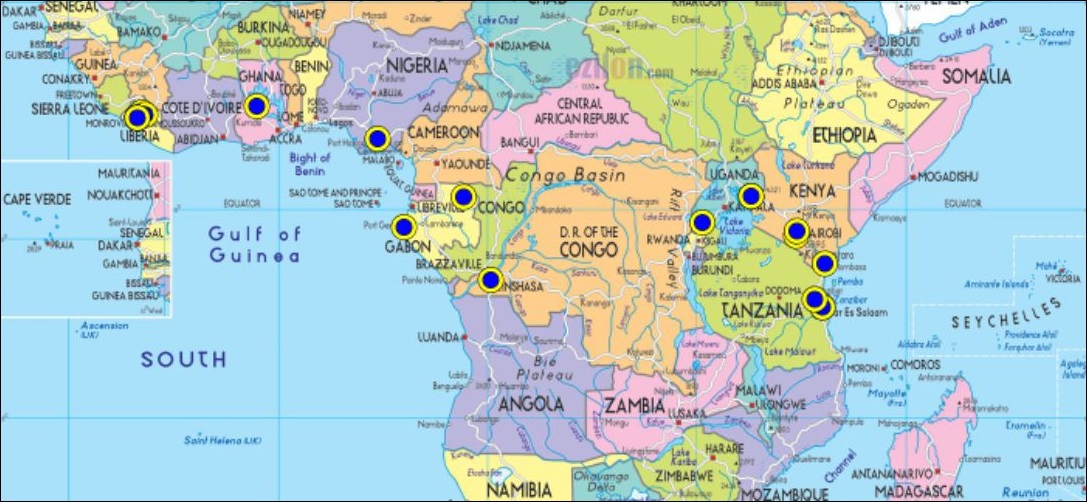 Abe Nigeria-03 Oct 2016: Residents protest an alleged land takeover by a Chinese company. Weala Liberia-20 Sep 2016: Weala and surrounding residents barricaded the offices of the County Superintendent in Kakata, renewing their demands for reparation from the Chinese International Construction Company (CICO) for damages to their properties. Weala Liberia-16 May 2016: Police used teargas and pepper spray to disperse hundreds of protesters that had staged a sit-in at the Margibi County office of the Chinese International Construction Company in Weala in demand of compensation for damaging their houses as a result of its operations, leaving at least four protestors seriously wounded. Kwale Kenya-29 Mar 2016: Locals deny Chinese firm water for SGR construction. Speaking during a public baraza held at the river bank on Tuesday, the group’s secretary Samuel Chondo said the company did not follow due process before starting to fetch water from the river. Weala Liberia-19 Jan 2016: Over 400 residents of Weala gathered at the offices of a Chinese firm in a peaceful protest demanding reparation for the demolition of their homes. Gbarnga Liberia-11 Nov 2015: Over 300 women from the "Aggrieved Group of Weala Community" staged a peaceful sit-in against the Chinese International Construction Company or CICO implementing rehabilitation work. They barricaded the two main entrances to the companys premises in demand of benefits for damages of their houses caused by daily earth blasting operations. Bukedea Kumi Uganda-19 May 2015: Peaceful demonstration over land protest, turned into a riot. The rioters attempt to lynch two Chinese investors who manage to flee the site unharmed. Kamukuzi Mbarara Uganda-18 May 2015: Disagreement between residents and Chinese Road contractor over destruction of graves led to clashes. Resident District Commissioner mediated the situation. Bukedea Kumi Uganda-12 May 2015: Residents in Bukedea clash with police during a protest against the grabbing of their land by a Chinese engineering company. The police fired in the air to disperse the demonstrators who retaliate with stones. Kinshasa DRC-21 Jan 2015: Clashes between Democratic Republic of Congo police and political protestors that left at least 40 people dead last week also revealed the level of hostility towards the Chinese in the capital Kinshasa. Jorquelleh Gbarnga Bong Liberia-11 Sep 2013: New Democrat (Monrovia) Youth booed politicians for decision on Chinese mines. Bagamoyo Tanzania-01 Jul 2013: Major Chinese investments, such as the new US$10 billion port to be built north of Dar es Salaam in Bagamoyo, are raising concerns amongst both the opposition and local communities. The government and China Merchants Holdings (International) Company signed a framework agreement on 30 May for a new special economic zone, railway link and port. The deal provoked some members of parliament to demand that the government reveal the contents of 16 other trade, cultural and development deals signed by Chinese President Xi Jinping and President Jakaya Kikwete during Xi’s 24 March visit. Ghana-01 Jun 2013: Ghanaians have also complained about the water and land pollution caused by the mining. The tension between the Chinese miners and locals, some of whom are gangsters, has been so high that many miners purchased weapons on the black market for protection. Dar Es Salaam Tanzania-21 Jul 2012: The construction of a Chinese funded gas pipeline from Mtwara to Dar es Salaam, possibly turning Tanzania the third largest gas exporter in the world, causes protests and violent repression by state forces. Kiambu County Kenya-09 Jun 2012: Residents of Membley Estate in Kiambu county yesterday blocked the Ruiru-Kiambu bypass, protesting at Chinese contractors constructing the Thika Superhighway, thereby flooding their homes. Dar Es Salaam Tanzania-21 Jul 2012: The construction of a Chinese funded gas pipeline from Mtwara to Dar es Salaam, possibly turning Tanzania the third largest gas exporter in the world, causes protests and violent repression by state forces. Nairobi Kenya-02 Feb 2011: Led by the civil society group, Friends of Lake Turkana, the protesters will deliver a petition, signed by more than 2,000 organizations and individuals, to the Embassy of the Peoples Republic of China in Nairobi, seeking the intervention of the Chinese government to either bar or advice the companies against involvement in this “environmentally, socially and culturally harmful mega-project”. |
 ACLED (Armed Conflict Location & Event Data Project) is the most comprehensive public collection of political violence and protest data for developing states. This data and analysis project produces information on the specific dates and locations of political violence and protest, the types of event, the groups involved, fatalities, and changes in territorial control. Information is recorded on the battles, killings, riots, and recruitment activities of rebels, governments, militias, armed groups, protesters and civilians. Data can be downloaded on the Data page, trend reports, working papers and other analysis from our Publications page, updated analysis on ongoing crises is found at our Crisis Blog. As of early 2016, ACLED has recorded over 100,000 individual events, with ongoing data collection focused on Africa and ten countries in South and Southeast Asia. The data can be used for medium- and long-term analysis and mapping of political violence across developing countries through use of historical data from 1997, as well as informing humanitarian and development work in crisis and conflict-affected contexts through realtime data updates and reports. ACLED data show that political violence rates have remained relatively stable in the past seventeen years, despite the waning of civil wars across the developing world. ACLED seeks to support research and work devoted to understanding, predicting and reducing levels of political violence. ACLED MAPS ACLED map superimposed on a hi res-map, Additional information can be added 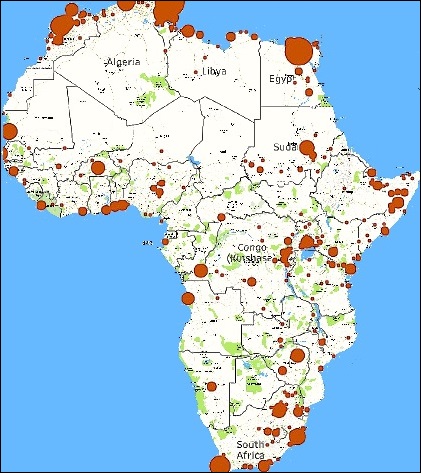
Protests 2011 Click to enlarge 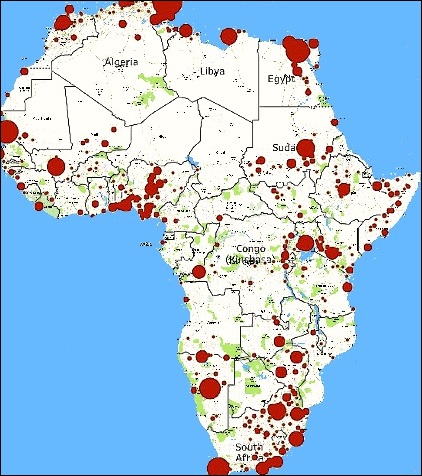
Protests 2012 Click to enlarge 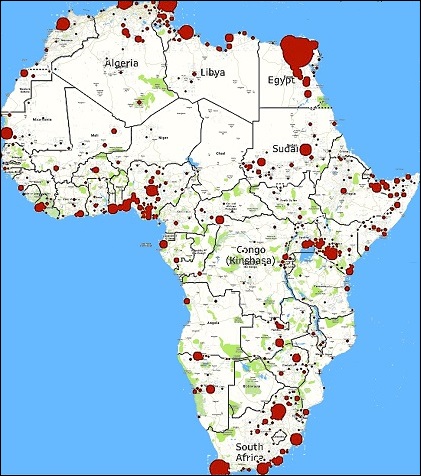
Protests 2013 Click to enlarge 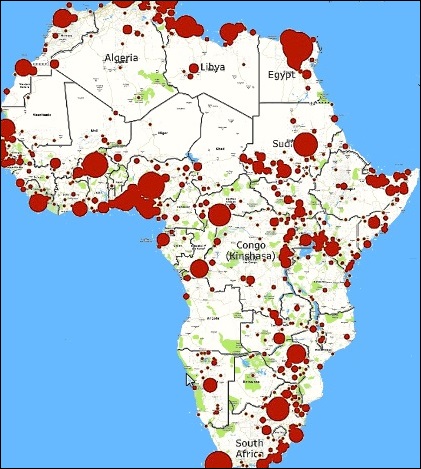
Protests 2014 Click to enlarge 
Protests 2015 Click to enlarge  The EJ Atlas is a teaching, networking and advocacy resource. Strategists, activist organizers, scholars, and teachers will find many uses for the database, as well as citizens wanting to learn more about the often invisible conflicts taking place.
1 Ghaghoo mine diamond extraction in the Central Kalahari Game Reserve,
Botswana
|
|
MORE INFORMATION BY REGION
NORTHERN AFRICA
CENTRAL AFRICA
SOUTHERN AFRICA |
| SOME LINKS FOR INFORMATION ON PROTESTS IN AFRICA
EJOLT (Environmental Justice Organisations, Liabilities and Trade) ACLED (Armed Conflict Location and Event Data Project) The GDELT Project Project |
Make a free website with Yola
